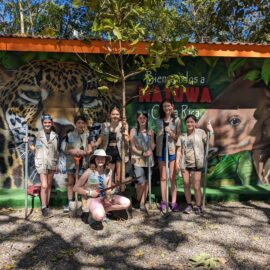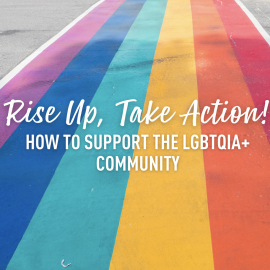Classroom Resources
Drawing Research Project Inspiration from Your Travel Program
Remember how your parents would sneak vegetables into every meal for you as a child? Or maybe you find yourself doing that for your own children? The point being, of course, is to give them something they need simultaneously with something they like. Parallels can be drawn between curriculum needs and travel programs. Traveling with your students gives you the chance to be just as clever, sneaking in moments of discovery, critical thinking activities, and opportunities for reflection into the itinerary without students even noticing. We can increase student connection to our content by proposing a dedicated guiding question or research project that they can focus on when on a travel program.
Encouraging inquiry based on the travel program’s itinerary will empower students to create a list of guiding questions that relate directly to your travel destinations. No matter your content area or your destination, students can explore aspects of history, STEM, language skills, music/fine arts, health/movement, or social emotional learning. Before the trip, individual students can choose their own topics of interest and start investigating, or small groups of 2-3 students can work together to research answers to their guiding questions. Think of all the brain power! Students’ questions initially may seem surprising or unrelated to the travel program. Lean into their interests!
Before departure, make sure students understand how to conduct research on a completely new topic. Model how you would start researching a topic that you have zero background on. Students can seek out existing information, reach out to primary sources working in relevant fields, or even make contact with locals who are living in the regions you will soon be exploring. Knowing what makes a source reliable along with understanding potential biases will help ensure students are incorporating trusted sources of information in their final product. Encourage students to reflect on the following as they begin their research:
- How will you gather information, and from where?
- How many sources should you consult before forming an opinion?
- What sources do you currently use regularly? Why?
- Do your sources contain multiple perspectives on the issue?
- How can we check up on media biases and perspectives?
Don’t worry if your travel program itinerary doesn’t initially seem to lend itself to research. Students can gather interesting information and take notes about each location they visit. Itinerary stops at parks, zoos, or natural habitats have the potential to generate interesting guiding questions. Has tourism been beneficial for the ecosystem? What other species call this region home? What improvements in modern technology and design are helping fight off erosion? If students need assistance, you can ask them to focus on specific facts and sites, or generate a list of themes that they can consider throughout the program.
In the midst of a busy travel program, when is it best for students to share what they’ve learned and what could a final product look like? Use the time on the coach or breakfast time for individuals or small groups to informally present what they have learned. Sharing a few interesting facts about where they visited will make students feel like they are the “experts of the day.” This gives students the chance to practice valuable public speaking and presentation skills. If you want your students to present something more formal after the travel program has ended, make sure these expectations are clear from the start! Some possible products include a gallery wall, videos or multimedia presentations, or social media posts. Finally, foster curiosity by encouraging reflection on inquiry itself! A key component of any research project or guided inquiry is for students to think about their experiences and how they delved deeper into topics that interested them. This will help create curious students who have the skills to tackle and find answers to those big questions throughout their academic career.
Related Articles

The 2024 WorldStrides Student Photo & Video Contest Gallery
Remember how your parents would sneak vegetables into every meal for you as a child? Or maybe you find yourself doing that for your own children? The point being, of course, is to give them something ...

Girl Scouts: Costa Rica Tour
Remember how your parents would sneak vegetables into every meal for you as a child? Or maybe you find yourself doing that for your own children? The point being, of course, is to give them something ...

2024 Mérida Pride Parade
Remember how your parents would sneak vegetables into every meal for you as a child? Or maybe you find yourself doing that for your own children? The point being, of course, is to give them something ...

Rise Up, Take Action: How to Support the LGBTQIA+ Community
Remember how your parents would sneak vegetables into every meal for you as a child? Or maybe you find yourself doing that for your own children? The point being, of course, is to give them something ...


